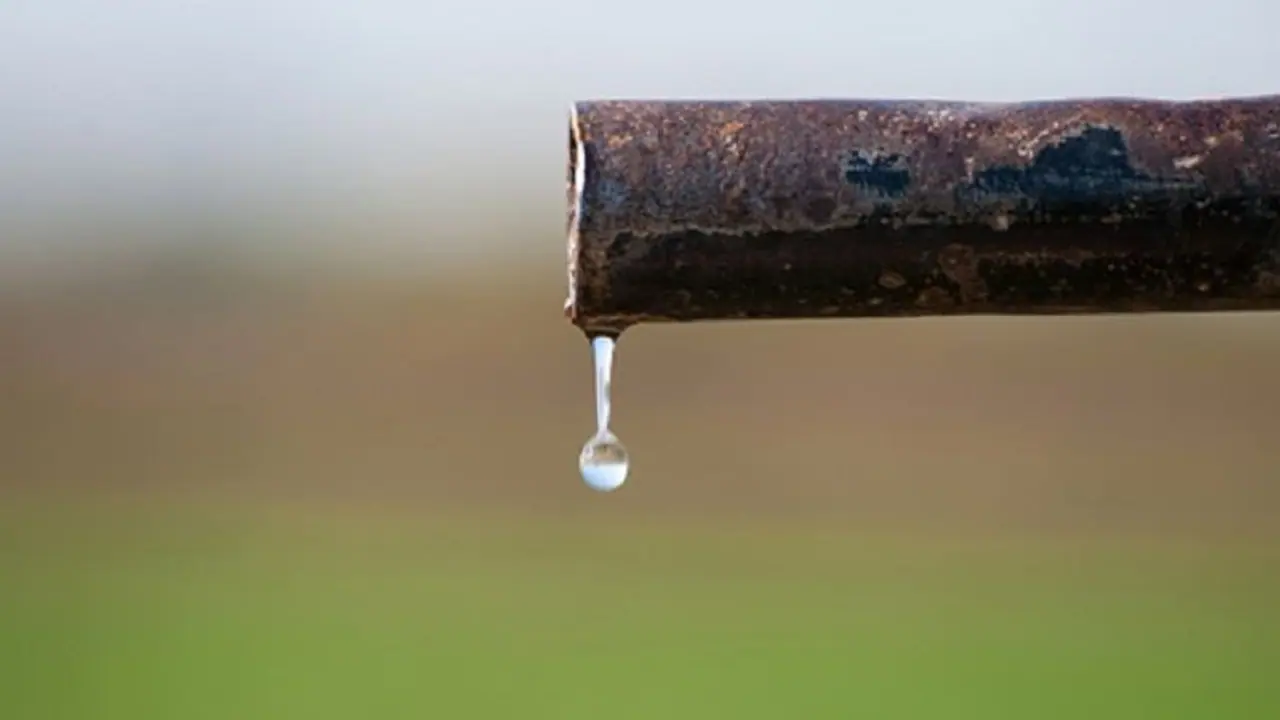Chennai has never been a water-abundant city. But with the northeast monsoon failing last year - it rained only on one day in that season - Chennai these days is running dry. And this wasn't unexpected.
Chennai: Last weekend, when Chennai newspapers were front-paging pictures of the cricket World Cup being held in England, the New York Times put on its main page the photo of a water-parched shrivelled land from Chennai, suggesting that the heat wave and water crisis have made the city practically uninhabitable.
It was not a typical alarmist, fear-mongering Western media piece. It is truly reflective of the everyday reality in Chennai, and many places in Tamil Nadu.
Chennai has never been a water-abundant city. But with the northeast monsoon failing last year --- it rained only on one day in that season --- Chennai these days is running dry.
A few hotels, unable to find water to serve the customers, have temporarily shut their doors. A few of them have moved to serving only online/app-based customers. If the situation persists, more than 50% of the restaurants would have to close, said M Ravi, president, Chennai Hotels Association.
Many offices, especially on the pivotal OMR stretch (IT offices hub), are majorly hit with no water in their premises. Many of them have extended the work-from-home option to their employees. But factories and outfits that would require workers at the office spot are facing the brunt of this situation.
Many locations in Chennai, including upscale ones like Adyar, Mylapore that traditionally had not seen much problem in terms of water scarcity are today in the midst of major crisis. With the official supply of water through metro water pipelines having long stopped, and bore wells, sunk to unprecedented depth over 500 feet, also having run dry, most households have had to purchase water supplied through tanker lorries (costing anywhere between Rs 3000 to Rs 4000 per load).
But with the demand at its historical high, water transported through tanker lorries takes at least four or five days to arrive, and at any rate, quality is not guaranteed at the end of the wait. Already, most resident associations in apartment complexes have started levying water charges (around Rs 2000 per house) over and above the monthly maintenance charges. Water and electricity bill due to the need for air conditioners round the clock have run riot in household budgets in the city, said Rathna Subramanian, a researcher in Chennai.
There have been water-related incidents and violence --- one case even leading to stabbing of a woman. In lower-middle class areas, where people cannot afford to buy water from outside for a cost, the wait for official water supply through metro water tanker lorries is almost eternal. People can be seen lined up in queues for hours together just to fetch a pail of water. "We are workers, employed or running small shops. I have a tiny flower outlet. When I have to stand in queue for hours, I lose my business in the shop. In that sense, we too are paying a price for water that is technically free," said one of the vendors in the area.
The crisis in Chennai is worse than many other parts of Tamil Nadu because there have been incessant rains in those regions. That this is the situation in the capital city says a lot about the lack of administration, said Muthukrishnan, a social activist.
The activist also added that Chennai, like most urban locations in India, has paid the price for rampant and greedy real estate growth. Apartments and high-rises have come up on former lake and river beds. In such a situation, this shortage was always on the cards.
The Edapaddi Palaniswamy government today convened a high-level meeting, which had ministers and top bureaucrats attending to discuss the water crisis buffeting the state and the city of Chennai.
But experts and activists blame the governments in the last 40 odd years for not seeing the reality staring in their faces. "The governments, with greedy politicos, willingly connived with the heart-less real estate mafias and have totally degraded the water beds and river and lake areas. Now the damage cannot be undone. Also, the governments did not come up with any meaningful urban drinking water irrigation projects that are workable and long-lasting," said Rathna.
The situation is just one step away from serious social unrest, warned Amudha Krishnan, a volunteer at an NGO. She said people are frazzled because of non-availability of something as basic as water. "If something is not done at the earliest, things will turn nasty and disastrous."
Many studies have been pointing out that Chennai and its nearby localities would face water shortage. But rather than working on a comprehensive plan, the governments just sat over and did things that have made the situation worse, said another water activist. She added, "The effects of climate change will be combined with an ever-increasing number of people to trigger intense competition for increasingly scarce resources. This can lead to regional instability and social unrest."
"In times of scarcity due to environmental factors and growing population, the water resources become thin and tensions result," she said.
Water crisis is the ultimate challenge for learning how to manage our crowded cities as well as resources in both economically-viable and environmentally-sustainable manner. On the face of it, our governments seem totally inadequate to face the challenge. And that does not augur well for the future, she added.
